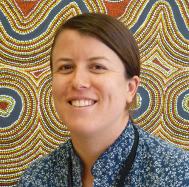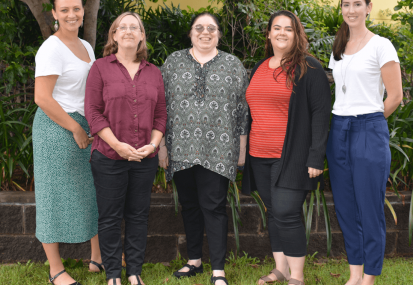Check out the first Life Course Studies newsletters for the year, where you will read the latest
Adolescence - Recruitment
2007 - 2009 Adolescence - Recruitment
Adolescence is an important developmental life stage where there is increased concerns about health, particularly mental health. However, young people have limited engagement with health services and health information remains sparse. Following the third wave of the ABC study, a complimentary non-Indigenous cohort was recruited to the Life Course Program. Participants who were eligible for this study were Darwin residents aged between 16 to 20 who were born in Darwin between 1987-1991 to a mother who was non-Indigenous.
Between 2007 and 2009, 196 non-Indigenous adolescents were recruited to the Top End Cohort (TEC) study. Recruitment occurred through many avenues including secondary and tertiary schools, sports clubs, work, media publicity and by word of mouth.
Those recruited underwent the same comprehensive health assessment as the ABC study participants, minus the dental component.
People
Dr Gurmeet Singh, Belinda Davison, Jennifer Goodall and Kalinda Griffiths made up the core research team.
Data collected
Detailed data on personal demographic characteristics, body size and composition was collected. Additionally , cardiac health, renal function and metabolic health was assessed by ultrasounds of kidney and carotid, blood pressure and various blood and urine biomarkers. Emotional wellbeing and lifestyle questionnaires were also completed.
Findings
169 people aged 16-20 (mean age18 yrs) were seen.
Most people were in a healthy weight for height range.
The low prevalence of chronic disease markers in adolescence suggests that there is still a window of opportunity beyond childhood to target interventions aimed at reducing the high burden of chronic disease.
Sub-studies
Through external collaborations, it also saw the addition of two sub-studies examining iodine and hepatitis B.
Due to financial and logistic constraints, the National Iodine Nutritional Survey did not include the Northern Territory. This cohort provided an opportunity to assess the iodine levels of non-Indigenous people in the Northern Territory prior to the implementation of a national approach of mandatory fortification of iodized salt in bread.
Top End Cohort
People involved in this study




Related publications
| Year | Study | Citation | View |
|---|---|---|---|
|
2007 |
Aboriginal Birth Cohort |
Sayers S, Mackerras D, Halpin S, Singh G. Growth outcomes for Australian Aboriginal children aged 11 years who were born with intrauterine growth retardation at term gestation. Paediatr Perinat Epidemiol. Sep 2007;21(5):411-417. |
|
|
2018 |
Aboriginal Birth Cohort |
Sjöholm, P., Pahkala, K., Davison, B., Juonala, M. and Singh, G.R., 2018. Early life determinants of cardiovascular health in adulthood. The Australian Aboriginal Birth Cohort study. International Journal of Cardiology. |
|
|
2007 |
Aboriginal Birth Cohort |
Mackerras D, Singh G. The prevalence of anaemia depends on the definition: an example from the Aboriginal Birth Cohort Study. Eur J Clin Nutr. Jan 2007;61(1):135-139. |
|
Related news
Sue also receieved the Menzies Medallion as a recognition for her remarkable contribution to heal
ABC news relayed our findings about iodine deficiency across the Top End.



